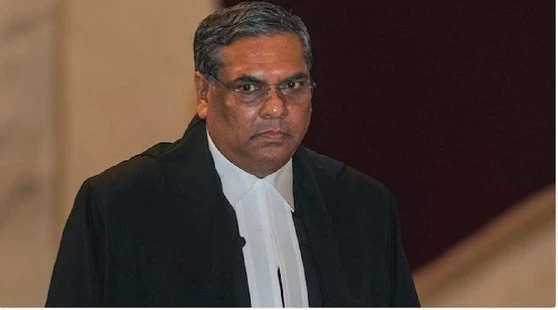By Sanjay Raman Sinha
The Chief Justice of India (CJI), Sanjiv Khanna, recently expressed concern over young, first-generation lawyers increasingly abandoning litigation. His remarks have sparked a debate on the working conditions for junior lawyers in India. According to the CJI, many young legal professionals are reluctantly shifting from litigation to corporate law, driven not by preference, but by financial necessity. Starting salaries for young advocates are often alarmingly low—typically around Rs 10,000—making it difficult for them to sustain themselves in a field where connections and influence often play a significant role. This leaves first-generation law graduates without a mentor or “godfather” feeling stranded, facing systemic barriers, financial instability, and limited opportunities.
Shabana Shaheen, a first-generation lawyer, shared her struggles: “Litigation often demands years of practice to establish a reputation, with income remaining inconsistent and limited during the early stages. Without established connections, first-generation lawyers are often confined to smaller, low-paying cases, which often hinders the pace of building their reputation.”
This exodus is not unique to India, but is more pronounced here due to the challenges faced by freshers competing against those with familial ties in the legal fraternity. A 2022 report from the International Bar Association (IBA) revealed that, out of 3,000 young lawyers surveyed worldwide, 20 percent have either left or are considering leaving the profession within the next five years.
Dr Lalit Bhasin, advocate and President of the Society of Indian Law Firms, explained: “Opting for litigation or a law firm job depends on the lawyer’s aptitude, which they often develop during law school.
While litigation can be lucrative, corporate law firms offer job security. Many young lawyers shift to the corporate side to enhance their career prospects, but there is no large-scale migration.”
Corporate roles typically provide better financial security and work-life balance, with steady salaries and benefits making them more attractive to young lawyers. The harsh realities of litigation often shock recent graduates who face low pay and lack supportive mentors, pushing them to seek greener pastures.
Siddharth Sen, another first-generation lawyer, shared his experience with India Legal: “As a fresher in a Delhi law firm, I was offered just Rs 10,000 a month. The firm deducted a day’s salary if I was late and didn’t reimburse travel expenses. I could have learned court procedures if I’d stayed, but low pay and unhelpful seniors led me to leave for a corporate firm after a year of what felt like slavery.”
In response to these challenges, alternative career paths in law—such as legal journalism, academia, and policy analysis—are gaining popularity. These roles offer more structured work environments, better pay, and reasonable hours, making them increasingly attractive to young lawyers.
Aashima, a young lawyer, described her career shift: “After a year and a half of low pay and gruelling hours in a law firm, I left to work as a law clerk. Later, I had no choice but to join a corporate firm to earn a decent salary.”
The exploitative conditions—long hours, low pay, and heavy workloads—often drive young lawyers away from litigation. Former Chief Justice of India DY Chandrachud advocated for fairer wages and support for young advocates, instituting a salary hike for law clerks during his tenure.
The urgent need now is to reform and restructure the working conditions for young lawyers. Bar associations and the
government could offer stipends or low-interest loans to alleviate financial pressures and encourage them to remain in the profession. Structured mentorship programmes, especially for first-generation lawyers, could foster talent and inclusivity. Law schools and bar councils must also promote legal awareness among young lawyers about alternative career options within the legal field.
In short, much-needed support and systemic changes could help retain and nurture talent, ensuring a fairer and more inclusive future for India’s legal system.


